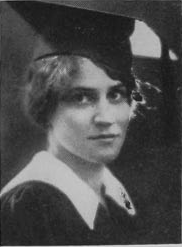Abstract
Margery Chittenden Leonard’s 1982 interview reflects her tireless passion for the Equal Rights Amendment. While she discusses her classes at Brown and her dormitories, the majority of her oral history is dedicated to discussing the fierce discrimination women faced because of their gender, and the necessity of the Equal Rights Amendment as the only way to reverse all of the gender discrimination encoded in the law.
A legal scholar, Leonard speaks of the discrimination she faced in law school that galvanized her to feminism, including her professor urging her to drop out and forcing her to recite rape and seduction cases in front of her male classmates while they jeered at her. When she graduated law school, the only position in the legal realm available to her was that of secretary, where, after receiving an A.B. from Brown University, and a J.D. from Boston University, she was in the same category as women with a high school education. Leonard remembers the discrimination that she faced after she began to lobby Congress for the ERA, including getting kicked out of political offices, her church, and social circles, as well as compromising her position at John Hancock.
Leonard reflects on meeting, and then working for, Alice Paul, and her time as a representative of the International Federation of Women Lawyers. She argues that the ERA is the only way to overrule all of the Supreme Court decisions that discriminate against women and the only way to achieve any permanence or clout, considering it a matter of simple justice.
Part 1
Recorded on April 3, 1982 in Brighton, MA
Interviewed by Julie Corman
Suggested Chicago style citation: Leonard, Margery Chittenden. Interview. By Julie Corman. Pembroke Center Oral History Project, Brown University. April 3, 1982.
Biography
Margery Chittenden Leonard was born in Agawam, Massachusetts, in 1907. Her father was a town official and her mother was a homemaker. She first attended Springfield Junior College and then Pembroke College at Brown University, where she earned an A.B. in history in 1929. She went on to attend law school at Boston University, where she describes being the only woman in a class of over 100 men. Despite intense gender barriers, Leonard graduated with a J.D. from Boston University. Unable to get a job in law upon her graduation besides a position as secretary, she found employment at the John Hancock Mutual Life Insurance Company. The acute discrimination Leonard faced during law school made her a feminist, and she spent her career advocating for the Equal Rights Amendment, even working under Alice Paul. She also represented the International Federation of Women Lawyers as an official observer of the United Nations session on the Commission on the Status of Women, always maintaining an ardent dedication to the cause of full gender equality under the law. Leonard died in 2001.
